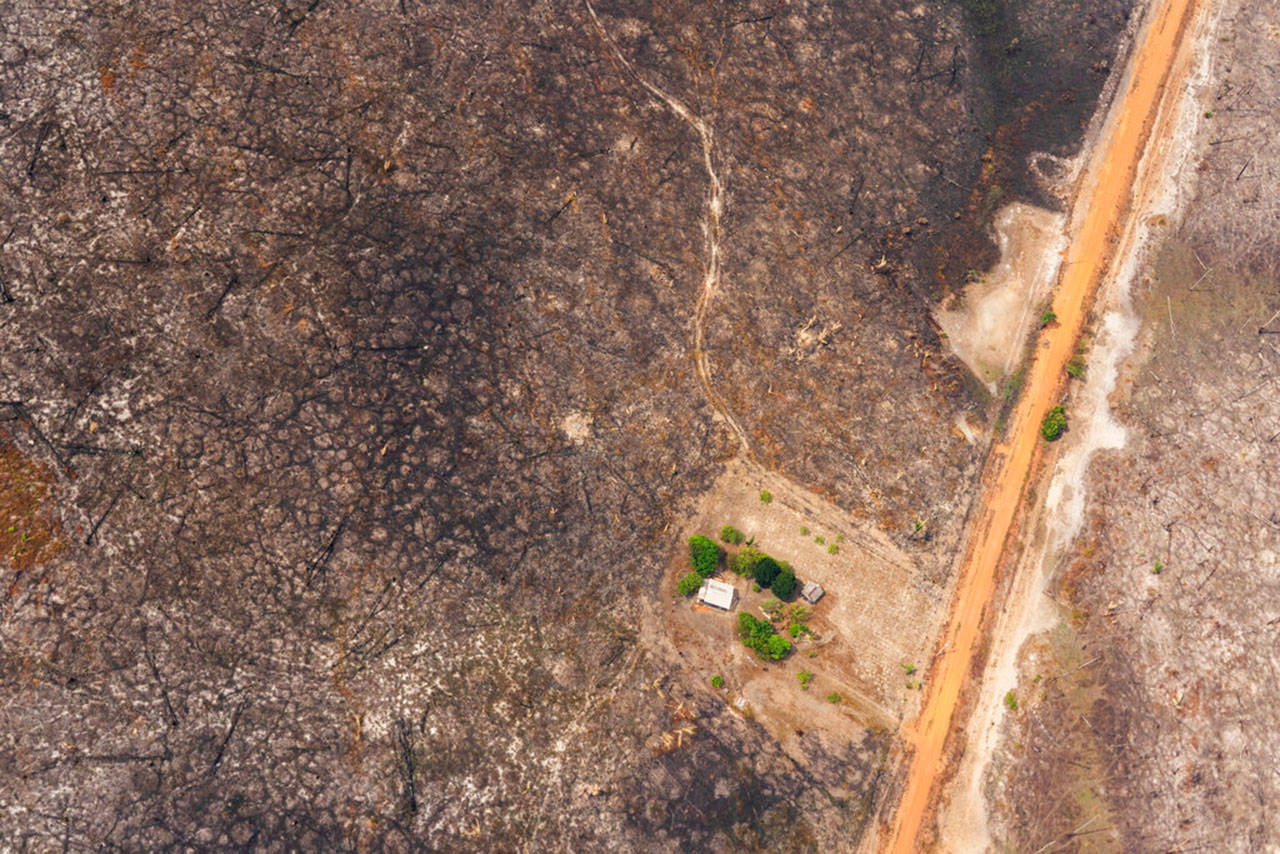By The Herald Editorial Board
Let’s clear the air here and correct a metaphor that’s been widely abused in recent news reports, social media bleats and everyday conversations, specifically about the thousands of fires now burning in the Amazon rainforest in Brazil and other South American countries.
No, the Amazon is not the lungs of the world; nor does that rainforest — about four times the size of Alaska — produce 20 percent of the world’s oxygen.
Go ahead, ask the nearest fifth-grader, and she or he will remind you that lungs do not make oxygen; with each breath they take in the oxygen we need to survive, distribute it through the body’s circulatory system, and release carbon dioxide.
Our lungs’ respiration is the reverse of plants’ photosynthetic cycle — ask a fifth-grader about that one, too — wherein plants synthesize the food they need from sunlight and carbon dioxide, releasing oxygen as a byproduct.
The Amazon-lungs metaphor confuses that relationship, even as it stretches to make a valid point about the importance of the rainforest, and really, all trees and plant life. Yet, it’s been the go-to simile for news reports, celebrities and politicians, eager to express dismay over the fires and the lack of urgency shown by Brazil’s president, Jair Bolsonaro.
And it’s there in Washington Post columnist Kathleen Parker’s latest column on this page.
As recent attempts to clarifying this issue — by National Geographic, The Atlantic and Forbes — have pointed out, over time the Amazon’s flora consumes about as much oxygen in decomposition — and fires — as it manufactures when its trees are alive. Credit the oceans’ phytoplankton over millions of years with creating and maintaining the earth’s abundance of oxygen.
While the metaphor fails, Parker and others are correct in expressing how crucial the Amazon is as an ecosystem that is beneficial not only to its host countries but to the rainfall and climate in the South American continent and elsewhere in the world, to biodiversity of plant and animal species — about 10 percent of the world’s species — and as a vital control on global warming worldwide.
Among the greatest concern about the fires now burning in the Amazon is deforestation, typically caused intentionally by farmers and ranchers to increase land in production for beef and soybeans. That deforestation has been ongoing for decades; and while this year’s fires are an increase over those in 2018, the Amazon saw far greater numbers of fires in 2002-07. To date, about 17 percent of the Amazon rainforest has been lost, not including degradation throughout the rainforest.
The concern for the fires now burning is that the Amazon may soon reach a tipping point in terms of climate; that the loss of rainforest — which helps generate much of its own rainfall — will begin transforming the basin into drier grassland and savanna in a self-perpetuating cycle.
The Amazon’s transformation, then, will dry up the farms now being created and could change weather patterns for South America, North America and Africa. Losing the Amazon could also significantly increase the release of carbon dioxide into the atmosphere. A loss of 60 percent of the Amazon, the NatGeo report said, could pump the equivalent of six years’ worth of global fossil-fuel emissions into the atmosphere, adding to the planet’s rate of warming.
As Parker and others have explained, political reaction to the Amazon’s fires has been less than helpful. An offer of $22 million from the Group of Seven nations to help fight the fires is too little to make much of an impact and was seen as “colonial” interference by Brazil’s Bolsonaro.
That reaction could become increasingly common as long as wealthier and more developed nations continue to condescendingly advise other nations on how they should be addressing environmental issues and measures to address climate change. It makes the argument for more collaboration, negotiation and incentives and greater attention put on the actions that those wealthier countries — the United States, foremost — should be making within their own borders.
But let’s start by recognizing that the Amazon — and all forests — are not lungs; they are forests with an undeniable role in protecting life on earth.
Talk to us
> Give us your news tips.
> Send us a letter to the editor.
> More Herald contact information.

























